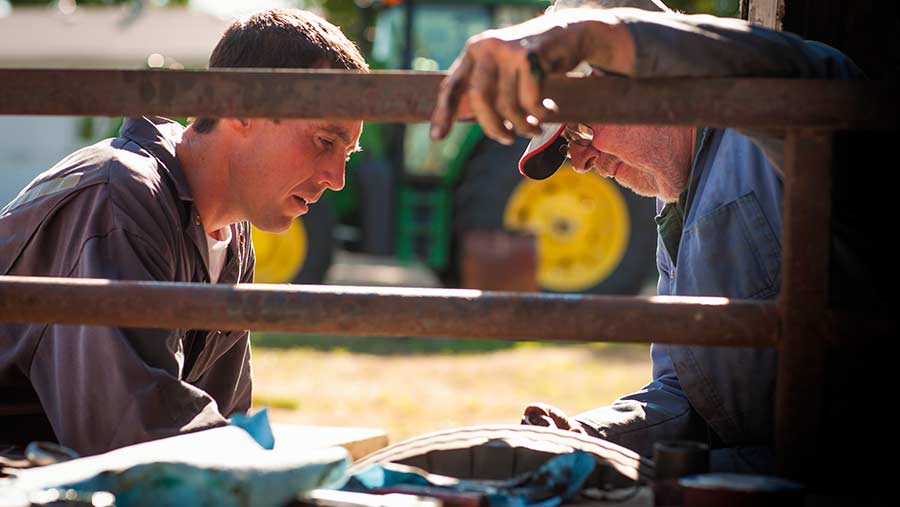Life insurance cost-effective as succession planning tool
 © Design Pics Inc/REX/Shutterstock
© Design Pics Inc/REX/Shutterstock Taking out a life insurance policy as part of succession planning can prove a cost-effective way for farming families to leave their children a fair share of any inheritance, while protecting the main farm business.
Mike Butler of Old Mill accountants says a common problem of parents with multiple children is that they want to provide for all of them fairly in their will, but to do so would mean splitting the farm, or the main beneficiary borrowing against the business to pay off any siblings who are not farming.
“For example, where a son may take on a farm in its entirety, subject to paying his sister, say £500,000, the issue arises when the parents die, and the son has to find that money,” he says.
See also: Advice on succession planning
“He probably hasn’t got the funds in his bank account, so has to borrow it – but the issue is repaying it.”
Mr Butler said over 20 years a £500,000 loan at an interest rate of 3% would equate to annual payments of £32,500.
However, as the capital element of those repayments comes out of post-tax profits, the cost of repayments in terms of pre-tax profits consumed rises to £48,000 a year– a costly and difficult way to inherit a family farm.
However, current typical market quotes suggest a husband and wife aged 65 and in reasonable health could take out joint life cover of £500,000 (payable on the second death) for a fixed annual premium of about £12,000/year.
Mr Butler said even if the parents lived for a long time the figures stack up.
“Apart from the fact that this would be good news for them, at least one parent would have to live beyond 137 years of age before the life cover arrangement became more costly [than the alternative of borrowing].
“Life cover has never been as cheap as it is at the moment and subject to achieving medical underwriting, it can prove extremely good value.”
Mr Butler stressed it is just one of a number of options available, but it is vital that farmers prioritise succession planning given how valuable business assets have become.
“Succession planning is the number one thing farmers should be looking at.”
Life insurance explained
Farmers need to take out a “whole-of-life” policy that pays out on the death of the named parties as long as the premiums have been paid throughout.
This is different to “term cover”, where there is only a payout if the person covered dies within a specified time period.
The market for life cover is very competitive, so it should be possible to lock into fixed premiums to offer certainty.
Premiums may be less than you might expect, given a whole-of life policy suggests a claim is inevitable – this is because a lot of policies get cancelled along the way and insurance companies factor this into their calculations.
If the policy is written in trust there are inheritance tax efficiencies, as the proceeds will not form part of the estate and the money can go straight to the beneficiary.
However, a downside is that while the premiums can be paid by the business, they cannot be treated as a business expense in order to claim tax relief.
